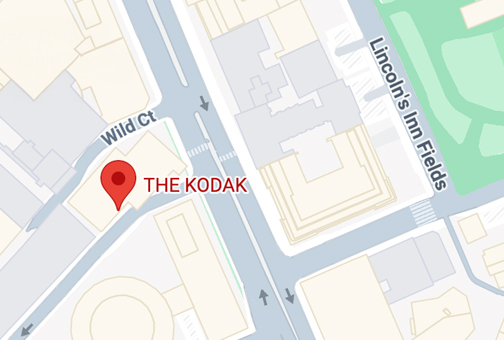
UKOM Technical Board member Scott Thompson is already on his eleventh Coronavirus context update for his agency, and 1,000 slides. “We need data more than ever,” he says.
What's brought you joy in lockdown?
I haven’t had to make an excuse for missing a social event I didn’t want to go to for months! Seriously though, the time I’ve got back from commuting and office lunches means an extra couple of hours that I get to spend with my family each day, which is a definite source of joy. Seeing the great job that my wife has done in supporting our kids with home schooling has been another source of joy … but hearing my daughter say that I’m the best teacher out of the two of us has probably been the biggest.
And the biggest challenge?
The biggest challenge at home was when our household was self-isolating just before lockdown and my wife developed a cough and fever. We couldn’t go to the shops, and couldn’t book a supermarket delivery slot in less than six weeks. Luckily, we have family who kept us going until we could get out without breaking the guidelines. But it was a shock to realise that in this day and age – with cash in my pocket – I could be days away from being unable to put food on the table for my family.
The main challenge, though, has been finding a balance between focus and multitasking. I can do ‘work’ fine, I can do ‘parenting’ (or ‘teachering’) fine, and I can do ‘husbanding’ or ‘housework’… not too badly. But as soon as I try to sit with my daughter doing her school work while also dealing with work emails – the wheels fall off and I’m doing a bad job of both. Getting the balance right has been the biggest learning curve.
What are you looking forward to?
The day I can go to my parents’ house and give them a hug.
What impact has the crisis had on your role?
Since it became clear that 2020 wouldn’t be business as usual, I’ve been working on providing updates for the agency to help keep people informed: the economic context, consumer feelings, behaviour and media consumption and the implications for agencies and advertisers. That kind of project would usually mean a couple of months planning, consulting, writing and promoting/presenting, but when the situation is changing so fast and data goes out of date so quickly, it has been a totally different experience. We’re on our 11th update, and over 1,000 slides.
Now that we’re figuring out how to sustainably live and work in a world where the virus is still out there, I think insight roles like mine are going to be more important than ever. Consumers’ worlds have been transformed in fundamental ways that marketers need to understand (not by technology, for a change!), but our professional worlds have changed too. We’ve lost all the cultural knowledge that you pick up from casual conversations between meetings, or the overheard conversations in offices, pubs and restaurants. We need data more than ever – trustworthy, so we believe what it says; transparent, so we understand what it means.
Is yours a role where remote working can be done seamlessly? What have you had to compromise on to get the job done?
I’ve been doing a day or two a week from home for a few years now, so it’s been a relatively seamless transition. But what I miss is being able to walk up to someone in the office and ask them a question. You get a clearer idea about what someone is thinking from an unplanned chat than an email or a scheduled meeting. But in a situation like this, there is compromise – when we’re used to working with data from surveys or panels that’s published on a monthly or quarterly basis and suddenly we want to know about how many people read a newspaper in the last week, you have to take any data point that you can get your hands on, regardless of whether it’s an independent, transparent and trusted source. When you’re used to dealing with the best audience data available, that takes a bit of an adjustment.
As we approach its launch in January 2021, what aspect of Ipsos iris are you most excited by?
Daily data. As the country went into lockdown, we found that daily BARB data was incredibly useful to give us a window into what was happening in people’s homes. Having a something similar for people’s daily digital lives is going to give us another piece of the puzzle.
Looking at your work, how do you see online audience measurement evolving?
It has to get more important, or we are in trouble. The last couple of years have made it clear that we live within our own bubbles. The shock of the referendum result showed many that their liberal city friends and industry colleagues weren’t a representative sample of the nation – but lockdown has meant that our bubbles are now more isolated than ever. We don’t know much about what is happening outside of our own households. We can't get away with relying on our personal experience or intuition as much as we used to, because there's a world out there that has been hidden from us for a quarter of a year, and it’s changed. Audience measurement data gives us the clues we need to recognise that there is world outside our own bubbles, and to understand what’s happening in it.
Scott Thompson is Associate Insight Director at Publicis Media










